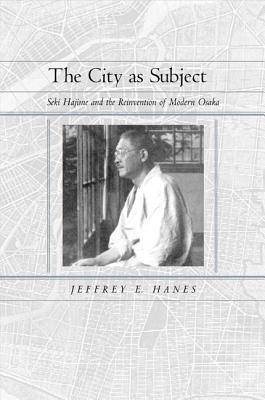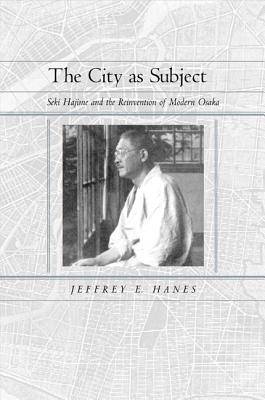
- Afhalen na 1 uur in een winkel met voorraad
- Gratis thuislevering in België vanaf € 30
- Ruim aanbod met 7 miljoen producten
- Afhalen na 1 uur in een winkel met voorraad
- Gratis thuislevering in België vanaf € 30
- Ruim aanbod met 7 miljoen producten
Zoeken
€ 106,95
+ 213 punten
Omschrijving
In exploring the career of Seki Hajime (1873-1935), who served as mayor of Japan's second-largest city, Osaka, Jeffrey E. Hanes traces the roots of social progressivism in prewar Japan. Seki, trained as a political economist in the late 1890s, when Japan was focused single-mindedly on "increasing industrial production," distinguished himself early on as a people-centered, rather than a state-centered, national economist. After three years of advanced study in Europe at the turn of the century, during which he engaged Marxism and later steeped himself in the exciting new field of social economics, Seki was transformed into a progressive.
The social reformism of Seki and others had its roots in a transnational fellowship of progressives who shared the belief that civilized nations should be able to forge a middle path between capitalism and socialism. Hanes's sweeping study permits us not only to weave social progressivism into the modern Japanese historical narrative but also to reconceive it as a truly transnational movement whose impact was felt across the Pacific as well as the Atlantic.
The social reformism of Seki and others had its roots in a transnational fellowship of progressives who shared the belief that civilized nations should be able to forge a middle path between capitalism and socialism. Hanes's sweeping study permits us not only to weave social progressivism into the modern Japanese historical narrative but also to reconceive it as a truly transnational movement whose impact was felt across the Pacific as well as the Atlantic.
Specificaties
Betrokkenen
- Auteur(s):
- Uitgeverij:
Inhoud
- Aantal bladzijden:
- 360
- Taal:
- Engels
- Reeks:
- Reeksnummer:
- nr. 13
Eigenschappen
- Productcode (EAN):
- 9780520228498
- Verschijningsdatum:
- 10/05/2002
- Uitvoering:
- Hardcover
- Formaat:
- Genaaid
- Afmetingen:
- 160 mm x 236 mm
- Gewicht:
- 739 g

Alleen bij Standaard Boekhandel
+ 213 punten op je klantenkaart van Standaard Boekhandel
Beoordelingen
We publiceren alleen reviews die voldoen aan de voorwaarden voor reviews. Bekijk onze voorwaarden voor reviews.











